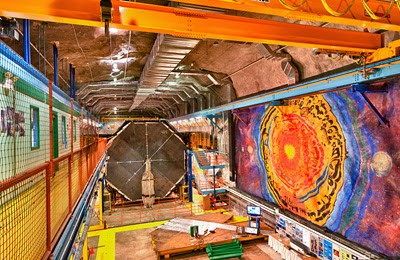This will be the fourth installment to the Enter Cypher Team Series which will be the first group of comic books to come out under the Cypher Team title from SoveReign Comics. If you read it, thank you very much for doing so! Also, I really hope that you enjoy. All pointers and advice are welcome.
Cypher Team i03 (c) 2009-2015
Battlefield
Dry crackles echo into naught while fiery embers dance through the air. The sky is gray washed, complimentary of the blissful quiet that is the urban jungle. Feline's claws are unsheathed and ready to dig into her prey as she inhales deeply. Her meal lay, unknowingly, to her readiness to strike.
“Pucha…I expected more from you." She remarked, sighing disappointedly. She continued her stalk on all fours, circling Alchemy and PyreBlade as they crawled to one another. "You were created to stop us, si o' no?"
"The great balancer...the one team that could keep us on your toes." She laughed but slowly began to growl deeply, as she continued her stalk. “Que roche..."
Jordan looked to his wife and then over to "buster," his weapon. No longer in sword mode but in its powerless state of no longer being in sync with its user…a scarab. It lay there, no longer enflamed, no longer…"alive."
"Jordan." Alchemy spoke to her husband, "I'm sorry, I got us into this mess. You're always telling me not to be so bloody hot~"
He interrupted her, "~Akana, don't apologize, I was the one that messed up, not you." He smiled to her, in an attempt to reassure her as he watched the molten steel melt away from her body.
They were both out of power and quickly too. Feline knew how to hit them and just where. Angering and distracting Alchemy being the number one objective on her list. It was the easiest way to tear them apart. That is how the Singletons worked, together, as one and when they worked as one, nothing could defeat them. Feline knew that, she had studied them before the fight and unbeknownst to the team, Tarot had devised the perfect plan prior to it all. With Alchemy and PyreBlade both laid out, cut deeply and weakened, her plan proved to be flawless. Or, was it?
Feline continued the stalk, smiling as she flashed fang at the two while listening to their apologies to one another. Despite the fact that this show of remorse would make some people think twice about their next move; Feline, while sick and twisted in her thought process, became aroused by it. The idea that a husband and wife would no longer get to see their children grow, would no longer move amongst the living and show love again towards one another; all this, in the palm of her hand and controlled only by the decision she would make, strengthened her mentally and in the end, got her off.
Feline purred, licking her lips as she continued to smile. She began to speak to her prey, this time fully in her native tongue. “Mmmm….eres jale y ahora estoy arrecha.”
The jaguar-like spots that covered her body faded as the thin layer of fur that concealed her silhouette began to change to a golden brown, morphing from the form characteristics that she once held to that of a Lion, once again. She unsheathed her massive claws as her fur-tipped tail whipped about in delight signaling, that she was prepared to give the final blow. This time, she planned to use full force.
"Don' worry...I'll make sure your ninos can still recognize your bodies," she laughed as she lunged in the direction of Alchemy and PyreBlade as they held each others hand, exhausted, preparing for the end.
"Kishu Wind Style! Cyclones Rage!" Sanjera yelled out, appearing between the cat and her friends in an up drift of tight spiraling wind.
Feline let out a hurtful roar as Sanjera connected with her, the wind from her fist spiraled between the two as it began to push the cat away, cutting at her body as it cast her away from the group, launching her about 40 yards down the broken street.
Feline hit the ground in a thunderous clamor, cracking the concrete on impact,breaking through about two or three inches of it, and after her head banged off the ground, her body skipped across the demolished street about another 25 to 30 yards.
Alchemy laughed to herself, rolling to her back as blood began to trickle out the side of her mouth. The only thoughts, at the time, that went through her mind were how close she was to death and how she had treated Sanjera so badly prior to this. Here, she and her husband lay, saved by the one girl that she had been jealous of and angry at for so long. She wiped the blood from her cheek and looked at it, quickly placing her crimson colored thumb into her mouth as her mind broke from Sanjera back into the direction of Feline…smiling, she thought, ”That bitch made me bleed."
Jordan chuckled to himself as the dust from the wind began to settle a bit. He thought it amazing how Sanjera was able to do so much, how she could generate so much power without having a Zenith chromosome or magical ability. He wondered, was the human spirit really that strong?
"Akana!?" He moaned out.
"What?" She answered.
"You alive babe?"
"I'm answering you, right?" She snickered in retort.
"Well then, looks like you owe someone an apology." He begun to laugh followed by a cough.
"Might want to shut it you...before you keel over!" she smiled and then turned her head to Sanjera as she stood between the two of them and Feline, her incredibly long pony tail danced on the remnants of wind blowing as gusts of it spiraled around her fist and arm. It wasn't everyday the vets got rescued by the rookies but, this girl has been proving her worth every since she got on the team. Whether she was Colonel Reign's first cousin or not, she sure as hell earned her way onto the team.
"You two ok?" Sanjera asked, keeping her back to them as she continued to look into the direction of Feline.
"For the most part rook," Jordan answered. "And thanks...I know Alchemy's not saying much but, she feels the same."
Akana turned her head away from the both of them failing in her attempt to ignore what he had said. Still not fully acknowledging Sanjera, her pride filling her even more.
"Its fine...and, sorry I took so long. I was watching, studying the feline...and gaining my strength back." She spoke, this time looking back over her shoulder at them, "the lightning elements take a lot out of me...I still have not mastered it."
"Its fine Sanjera," Alchemy finally spoke, "We're just glad that you came when you did. Thank you..."
Sanjera smiled, under her wrapped mask but, it could slightly be seen as creases formed into the cloth of it. She didn't smile because Alchemy thanked her but, because that was the first time that she spoke to her using her first name. She held both of her hands out to them, "Stay still, please. While I'm not as good as The Madame at this...I can heal your wounds slightly. Just enough so we can finish this.”
Jordan sighed, “I don’t think we’re gonna be doing too much moving, rook.”
"So, you can heal also?" Alchemy asked.
"A little. Humans can do anything when they learn patience and balance. Mastering ones spirit energy can open all sorts of doors. More than that, when one unlocks the chains wrapped around their heart and mind, they can fully unleash what it is that we are really meant to be. Our true power.” A blueish green aura began to radiate from her hands into the direction of Alchemy and PyreBlade; kicking a little more wind as she spoke. It encased them forming a transparent, cocoon like chamber. Their wounds began to rapidly heal, sending steam from each cut and hissing slightly as they closed.
Akana looked over her body and smiled. Her muscles, she began to gain control over again and her strength came flooding back into her. Now, she finally saw why Sanjera got the spot of infiltrator, she could do anything and at that moment Alchemy decided to let her have the top spot. She was better teamed with her husband anyway.
"Well, aren't you just full of surprises," she joked, while thinking to herself, that maybe she too should unlock those chains as well.
~~~~~
Colonel Reign and The General looked over to their former teammate and friend as her dress and hair danced in the wind. Shots of her thigh revealed itself from the split of the lower part of her dress that flipped about, catching itself on the armor of her left boot.
This was something that they both weren't prepared for. They had a packet on The Angels of Anarchy but, no where in that packet did it mention anything about Mona Villa-Rodriguez. The cousin and lifelong best friend of Sara Villa-Blair.
Not only did this put a tactical stint on the plans The Madame had for beating the angels, the angels she had intel on that is; it also, cut her deeper than any wound would and emotionally, caused her to break down…internally. She held it together though, one thing she couldn’t do was show her team that her will was wavering. That she, just like them, was hit to hard and couldn’t find a way to recover. If she panicked, who would lead the team strategically and heal all the injuries that she was so sure would happen? There was no denying it now, now that Tarot was here.
The Colonel looked to Sara as she stayed in her constant trance, eyes locked on Mona. Tears began to fill them as she continued her gaze. Hurt, question and unknowingness read on her face. Emotions clamored in one after another to fuse to one. Unsure of how she could and should handle the situation that was presenting itself to them, she closed her eyes, the tears that once gathered, fell down her greenish blue cheeks.
Colonel Reign knew how close the two of them were. He remembered in the early days of the original team in The Black Lions, how you wouldn't see one without the other. If it weren't for the obvious visual and verbal accents of the two, one would have thought that they were twins. They would finish one another's sentences, feel one another's pain and when one wasn't there, the other would clam up and become this shy, reclusive version of themselves. This showed itself when everyone thought that Sara died in the Miami catastrophe. Everyone took in the facts, or what they thought were facts, of Sara's death hard, especially Elias. He and Sara became good friends as well. Their old leader, General George Stine aka Cypher Hawk, left the Lions after Sara's “Death." She being the first death he'd had under is command in battle, he really didn’t know how to rebound from it and this he thought, made him less of a leader especially since there was nothing he could do to save her. No one however, took it as hard as Mona. It was literally as though someone took half of her away, emotionally, mentally, physically and most of all, power wise. She was off, her control was neither here and there and fortunately for the rest of the team, it showed a lot during training. Because of that, she was stopped from going on missions.
Eventually, she stopped leaving her quarters, and sometimes at night you could hear her…crying. Not low quiet sobs but, deep, agonizing cries. Cries that a person would release while in deep pain or… when the harrowing torture of a thing left them with no where to turn. Eventually, she was asked to take a leave of absence, to go home, clear her head and most importantly, spend time with family. With that though, she had to look into the eyes of her family and tell Sara's mom, who was her aunt, how she couldn't keep her promise to her, how she couldn’t bring her little girl home.
They never saw Mona again after she left. She was marked as UA but, it didn't matter much since a couple weeks later, The Black Lions and the Original Team were both put to rest. The organization, TEMPLE, had agreed with the American Government and NATO that the team responsible, would be deactivated. The President saw it as domestic terrorism and by all accounts and definition, had the right to see it as such. However, the main question being…what could any military member in the American Military or NATO do to stop them, if one of them had the power to blow up a city?
Everything was packed away and put in the “basement,” that one alienated and abused child from a dark story that the fiendish parents didn't want anyone to know about. Unfortunately, before all that happened, word got back to the unit that Mona was found dead; a tragic end as the coroners’ outline reported that inflictions around her neck suggested that she’d taken her own life. Looking at it all now, that was a lie; an illusion. Just like Sara dying in the nuke that she and Obsidian created during their fight. Either that or, these two girls didn't know what being dead and staying dead meant.
"I got it Sara," The Colonel spoke, stepping forward towards Tarot. This caused the two, Tarot and Breather, to go on alert. Breather, took a defensive stance. Stepping in front of Tarot, readying herself to take short breaths to exhale rapidly as energy blasts. Something she caught on to when she was in high school as a quick offensive technique she could use to attack on the move.
A card appeared between the finger tips of Tarot, causing Colonel Reign to stop in his tracks. He had no idea which card she picked and he knew death was in there somewhere. She never liked using the card but he was unsure if that feeling still lingered. She was a different woman now. Maybe now, she would have no issue letting the cloaked ender swing her scythe on the field. Ripping the soul from each member of Cypher Team and anyone else for that matter. Anyone but Tarot. He saw her use that card one time and after using it, she cried. Her heart broken from all the deaths left on the battle field that day due to her not knowing how to stop it. Her blood-curling screams to "stop" didn't work like she wished. From that day on, she vowed never to use the card again, and in most cases would leave it at the compound before leaving for a mission but weirdly enough...it would find its way into her deck. It was though it had a mind of its own.
"No," The Madame finally spoke up, placing a hand to the shoulder of Elias. "She's my cousin, my blood, my friend. Let me talk to her...that's really the only way we can get her to stop and...you know that." She spoke stepping in front of Elias.
Breather made a sharp inhale and let out a quick bullet in the direction of The Madame. Elias quickly moved into the way, slapping the energy bullet from the sky with his right hand and releasing an energy pulse back at Breather with his left. This one not as powerful as the one he released earlier but it did let out a low bass drum like boom as it broke away from the palm of his hand.
Tarot turned the card around that she held between her finger tips. Revealing "The Fool" again. It made his energy orb disappear, causing him to gnash his teeth as he let out a curse.
At the same time, The Madame and Tarot spoke, “Enough…”
The two women looked at one another, a smirk coming to both of their faces as they both remembered the days when they used to say things at the same time.
"You're supposed to be dead Sara...," Tarot spoke as as the card disappeared from her hand.
"You too, Mona." The Madame answered back.
"I saw you die, you blew up, you and Obsidian in Miami that day. Do you know what that did to me?"
"And Elias told me when I got back that you took your own life," She answered almost instantly, "So...where does that leave us? Huh? On the opposite side of the power struggle now? You on the side of evil and me on the side of good?"
Tarot stepped back, anger covering her face. There was so much going through her mind and she wanted to just rage out and tell The Madame exactly how she felt. Which is exactly what she did.
"You left me here!" she screamed as black fog began to move around her, "They did nothing for you prima, NADA! They kept going, with their missions, no funerals. No one could know. I had to lie to your mom and dad!! They couldn't know that it was their little nina that died in Miami that day...that Sara, was indeed Madame Neutron."
Her anger began to build a little more raising the earth from the ground her eyes turning black in the process. "You were my sister, mi hermana...and do you know how I had to find out you were alive, huh? When we got new intel on Cypher Team. My cards told me that you were alive but...I didn't want to believe it. Why didn't you come to me?! Why didn't you tell me you were alive?! ME!? You let me suffer!" she roared sending a telekinetic push towards The Madame and Colonel Reign.
Quickly Colonel Reign set up to block and absorb the energy but, it was to no avail as it knocked him from his feet, sending him past The Madame. Quickly, The Madame threw up a hand catching him telepathically and turned him upright, sitting him on the ground.
"Well, that's new." He laughed with a slight cough.
"Turmoil causes ones powers to grow and change on many different levels, cabron. I've studied different types of magic after I left and, I plan to use it all. on. you. I hate Cypher Team, The Black Lions, TEMPLE, these governments that fear us and in turn want us dead...and most of all, I hate you Sara...for forcing me to suffer." She said with pure distaste in her voice.
Tarot caused her entire deck to appear in the palm of her right hand and with a flick of her left hand, the cards left the deck simultaneously, until ever card was spiraling around her.
"Shall we start now..."
"Shit." remarked Elias.
~~~
"So, how are you both feeling?" Sanjera asked, pulling her power back from Alchemy and Pyreblabe.
"Better" PyreBlade answered, walking over to his scarab, fist engulfed in flames. He picked it up and then looked over to his wife, who was now making fists, looking herself over. Her skin no longer the color of Mercury but back to her original tone, a deep mahogany.
"Oh yea," Alchemy answered, looking to Sanjera. "A hell of a lot better, thank you." And with a snap she opened her hands, the mercury colored liquid quickly moving from her hands up her arms, to her head and then down to her feet. She changed her hands and arms over through a couple of different weapon types and then grinned.
"Seems we have two medics, who would have thought." PyreBlade chimes in, walking back into the direction of Sanjera as his liquid metal spewed from the hand he held the scarab in, forming itself into a blade.
"I'm no medic, it is not my main focus. Infiltration is, I will only use this if you need it." she nodded in hopes that they understood.
"Even still, if it weren't for you, we would be dead. The Madame and The Colonel seem to be very, very busy at the moment. So, having an additional medic comes in handy."
"Maybe." Sanjera agreed.
"So, Lieutenant Reign, how hard did you hit her...is she dead?" Alchemy asked
"I don't think so tai-" in the middle of her answer, a loud roar echoes through the air. "-cho"
"Guess that answers the question, be on guard...remember she has~"
"~four cat forms; Tiger, Lion, Jaguar and Cheetah. Each one has its own ability; Invisibility, Super Strength, Super Agility and Super speed." Sanjera smiled again under her mask, looking between the two of them. "I told you, I paid attention."
Alchemy smiled, "Seems like you did."
"You two, just keep in mind. Don't let her split you up. You both fight at your strongest together, as one.” Sanjera added.
Alchemy and PyreBlade looked to one another, they knew that she was right. They did fight better as one. It was something they both forgot about in the initial fight with Feline. They let Feline infiltrate the phalanx and when she did, she ripped them apart. That was something that they weren't going to let happen again. This time, they were going to give it their all, this time, they were going to win.
Translation~Glossary
Pucha- Peruvian slang used to show an expression of disgust, distaste, surprise, relief, etc. Not Literal and not in reference to a person. Derives from the spanish word Puta for bitch or whore.
Que Roche- Peruvian slang meaning “What a shame.” Roche meaning shame.
Jale- Peruvian slang meaning a persons attractiveness.
Arrecho (a)- Peruvian slang meaning “horny” or turned on.









